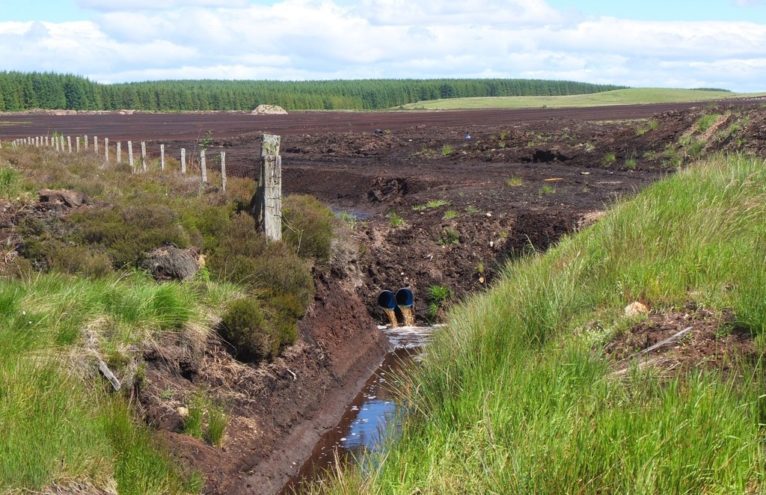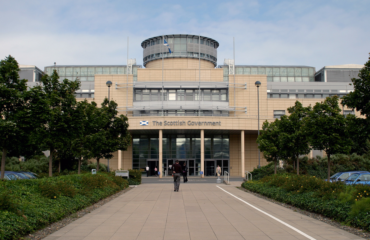Fertile Ground for Disagreement Post Brexit? The regulation of peat-based products

The Environment Secretary’s recent announcement of plans to ban the sale of peat-based products for gardeners in England presents a useful opportunity to think about how post-Brexit arrangements could affect many areas of environmental regulation. Working through this example shows how complex the regulatory position has become.
Peatlands
Peatlands are an important resource, and the benefits of protecting and enhancing them are recognised across the UK. As well as their role in supporting biodiversity and regulating water supply and quality, they have a major role in relation to climate change. Healthy peatlands extract and store carbon from the atmosphere, but once they are degraded or destroyed they become a significant source of emissions. Stopping the extraction of peat for gardening purposes, when there are alternatives readily available, is an obvious step to take (and legal intervention is arguably overdue since long-standing voluntary schemes to limit the use of peat have not been effective).
United Kingdom Internal Market Act 2020
The starting point is clear. Whether through an Act of Parliament or regulations made by UK Ministers, laws can be put in place to ban the sale in England of peat-based products. However, if such products can still be lawfully sold in any of Scotland, Wales or Northern Ireland, then the UK Internal Market Act 2020 comes into play. Even though Scotland and Wales (see below on Northern Ireland) are likely to share the same broad objective, any parallel measures may not have exactly the same scope and may come into force at a different date. Under the Act, products that can lawfully be sold in other parts of the UK cannot be excluded from the English market. This would mean that even though peat products may be banned in England, they will remain available, flowing in from other parts of the UK until similar bans take effect across the whole UK.
There are three ways in which such a position might be avoided. The first is if the ban could be seen as a matter that falls within the scope of the powers reserved to the UK authorities under the devolution settlements, rather than as a matter that lies in the hands of the devolved administrations. This seems unlikely, but highlights the focus that will now fall on the accurate categorisation of regulatory measures under the various devolution settlements. Previously this has been overshadowed in many areas by the need to implement EU rules; the shared competence to do so and the broad powers under the European Communities Act 1972 meant that a way could be found to achieve that end without a detailed dissection of legislative authority. For new regulatory measures though, such as England’s proposed ban on peat, identifying exactly where legal powers sit and their boundaries is essential.
The second route to prevent an England-only ban from being by-passed is to argue that the measures fall within one of the exclusions to the internal market rules as set out in Schedule 1 to the Internal Market Act, e.g. preventing the spread of pests or diseases. However, these are very tightly drawn, much more so than the equivalent scope for divergent national rules within the EU’s Single Market. Again, this seems unlikely to apply here. Nevertheless, a firm conclusion rests on a detailed examination of the statutory provisions, which include some specific rules on fertilisers and pesticides.
The third way of avoiding possible problems would be for all the administrations across the UK to agree to a common framework on the issue. This would enable the co-ordination of the content and timing of the rules on this subject, so that all the jurisdictions keep in step. This approach enables a single position across the UK whilst respecting devolved competences and is working successfully in a few areas. It does, however, require a willingness to co-operate that can be undermined by political considerations; the current climate is not promising for its extension. Pursuing such co-operation was not made easier by the imposition of the Internal Market Act, without consent from any of the devolved parliaments.
Northern Ireland
The position is even more complex when the effect of the arrangements with the EU are considered. As far as the main body of the EU-UK Trade and Cooperation Agreement is concerned, there should be no difficulty. Restrictions on peat-based products will not involve a weakening of the level of environmental protection so as to fall foul of the non-regression provisions (Part 2, Title XI, art 7.2). Nor are they likely to be seen as creating a “significant divergence” creating “material impacts on trade or investment between the Parties”, so as to trigger any “rebalancing” actions (ibid., Art 9.4).
The significance of the Northern Ireland Protocol may be different, though. In the first place, under the Protocol, a large number of EU rules (set out over 33 pages of Annex 2, many dealing with agriculture and the environment) must still be observed in Northern Ireland. If a ban on peat-based products would fall foul of any of these, then no such ban can be introduced, with the consequences noted above under the Internal Market Act. That Act does allow for some restrictions on the unfettered access of Northern Ireland goods to the rest of the UK (s 47(2)), but it seems unlikely that any of the reasons stated there would apply.
A more likely cause of difficulty is the wider status of Northern Ireland as being broadly within the EU Single Market. The Protocol states that “the lawfulness of placing goods on the market in Northern Ireland shall be governed … as regards goods imported from the Union, by Articles 34 and
36 TFEU” (art 7(1)). This means that a ban on peat-based products in Northern Ireland could be challenged by an importer from elsewhere in the EU (such as Ireland) as being in breach of the laws establishing the EU Single Market. These laws generally prevent national rules prohibiting the sale of products that are lawfully available elsewhere in the EU.
National rules that block imports can nevertheless be maintained in some circumstances, much wider than those allowing national differences under the UK’s Internal Market Act. Essentially these require the national rule to be adopted for a recognised purpose (environmental protection qualifies), to be non-discriminatory (a ban on all peat-based products would satisfy this) and to be proportionate. That last requirement may be a more substantial hurdle, and certainly one that might lead to argument in court, as in the litigation over minimum alcohol pricing in Scotland. Under the Protocol (art 12), the Court of Justice of the European Union retains jurisdiction in such matters.
Regulatory Complexity
Accordingly, the decision to introduce any restriction on the sale of peat-based products in England cannot be assessed as an English matter alone. The position across the rest of the UK, and indeed, indirectly the EU, has to be borne in mind. It is not just the UK’s own internal market rules that have to be considered, but also the Trade and Co-operation Agreement with the EU, and the Northern Ireland Protocol. Moreover, the terms of any international trade deal with other partners may also be relevant in shaping regulatory rules here (and be a particular bone of contention if these have been agreed by the UK Government without support from the devolved administrations). We may have escaped some Brussels ‘red-tape’, but regulation remains a tricky business requiring the position of others to be considered rather than being undertaken in isolation.
Warning
This blog is most definitely not a confident assertion of the accurate legal position. But many people I have talked to seem similarly unconfident, and all comments and corrections will be gratefully received. The two things that are clear are that the position is not straightforward, even for those designing new regulatory interventions, and that the new trade rules will have a big impact in many areas of law.
About the author
Colin T Reid is Professor of Environmental Law at the University of Dundee. On Brexit matters he has given evidence to parliamentary committees at both Westminster and Holyrood and served as adviser to a Holyrood committee. He is grateful to Prof Stephen Wetherill for discussion at a very early stage of planning this blog.
Photo © Jim Barton (cc-by-sa/2.0)




